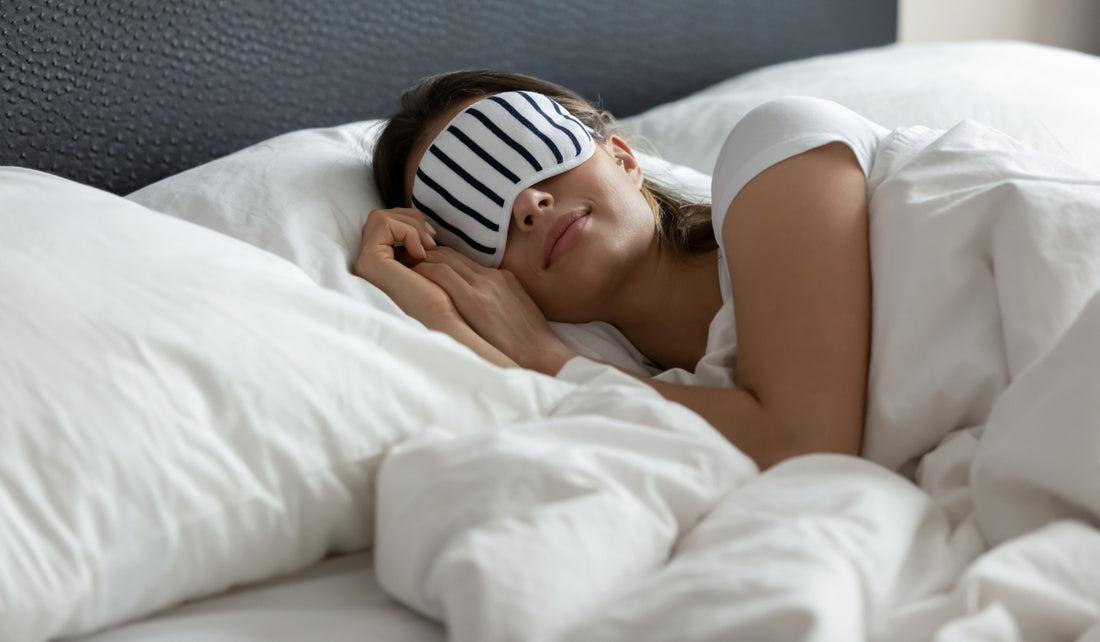
Why Sleep Matters for Skin Health and Wellbeing
Share
Sleep is not just about rest; it's a vital process for your overall health and wellbeing, especially when it comes to your skin. When we sleep, our bodies enter a heightened anabolic (building) state, focusing on growth and repair. This is when all our major biological systems rejuvenate, making sleep an essential part of your skin-healing journey.
Studies show that people who sleep less than five hours a night are over 70% more likely to struggle with weight problems, face a far greater risk of disease, and experience a significant increase in skin ageing. These are powerful reasons to prioritise sleep! In fact, sleep is now believed to be even more important than diet in determining your overall health.
Getting adequate sleep not only supports your body's natural functions but also provides you with the willpower and energy to make other positive changes in your life. If you're looking to improve your skin health, starting with better sleep habits is a smart move.
Here are some tips to help you establish beautiful sleep patterns:
Get to Sleep Before 10 PM
Getting to sleep before 10 PM is crucial for overall health and skin health. The two hours before midnight are particularly important, as this is when a significant amount of physical repair and healing occurs in the body and skin. If you struggle with this, treat the adjustment as though you are recovering from jet lag. Gradually bring your bedtime back by 15 minutes each night until you reach your goal. Remember, it can take a few weeks to establish a new sleep pattern, so patience is key.
Create a Bedtime Ritual
Make the hour before you go to bed special—different from every other hour of the day. Dim the lights, light some candles, listen to soothing music, or read a book instead of checking the news. Enjoy a cup of chamomile tea to relax. Avoid starting new projects, arguments, or that movie you've been meaning to watch. Instead, choose calming activities that lead you into a state of peace and prepare your mind for sleep.
Use Your Bed Only for Sleep and Sex
The brain thrives on predictable connections. Reinforce good sleeping habits by using your bed only for sleeping or sex. Avoid turning your bed into an office, lounge, or movie-watching space, as this can undermine your bedtime ritual and weaken the association between your bed and restful sleep.
No Screen Time in the Hour Before Bed
Close your laptop, put your phone in another room, and disengage from social media at least an hour before bedtime. The blue light from screens can confuse your circadian rhythms and stimulate wakefulness, making it harder to fall asleep. Disconnecting from screens will help you reconnect with the world in the morning with greater grounding and perspective.
Don’t Drink Tea or Coffee After 12 PM
Caffeine has a long half-life, meaning it stays in your system for hours after you've consumed it. Drinking caffeinated beverages in the afternoon can disrupt your ability to fall asleep later on. Set yourself up for success by avoiding tea or coffee after midday, so your biology is harmonized with your sleep goals.
Don’t Take B-Vitamins After 2 PM
B-vitamins are great for boosting energy levels, but this can be counterproductive when you’re trying to wind down in the evening. Avoid taking vitamin B after 2 PM to prevent any disruption to your sleep pattern. For example, Bestow Beauty From Beneath multi-vitamin capsules include a skin-friendly dose of B-complex vitamins. For best results, take one capsule with breakfast and another with lunch.
Have a Lot on Your Mind?
Anxious thoughts can make it difficult to fall asleep. If this is the case, try using the Anxiety Release app. This app teaches you how to release anxious thoughts and feelings naturally, using bilateral brain stimulation. It’s based on EMDR (Eye Movement Desensitisation and Reprocessing), a revolutionary treatment that uses sensory stimulation to alter anxiety-provoking memories and responses.
Download the Anxiety Release app.
Wake at the Same Time Each Day
Consistency is key when it comes to waking up. Aim to get up at the same time every day, even on weekends. Your body likes predictability and will start preparing for wakefulness in the hours before you rise, increasing levels of hormones like cortisol to boost your energy. This explains why you might often wake up just minutes before your alarm. Following a diligent sleep routine helps your body work with you, making waking up a natural and pleasant experience. Weekend sleep-ins can throw off this balance, so find a sleep-wake cycle that works for you and stick to it daily.
By making sleep a priority, you can significantly impact your skin health and overall wellbeing. Begin your skin-healing journey by focusing on getting better sleep—you’ll be amazed at the difference it can make!
